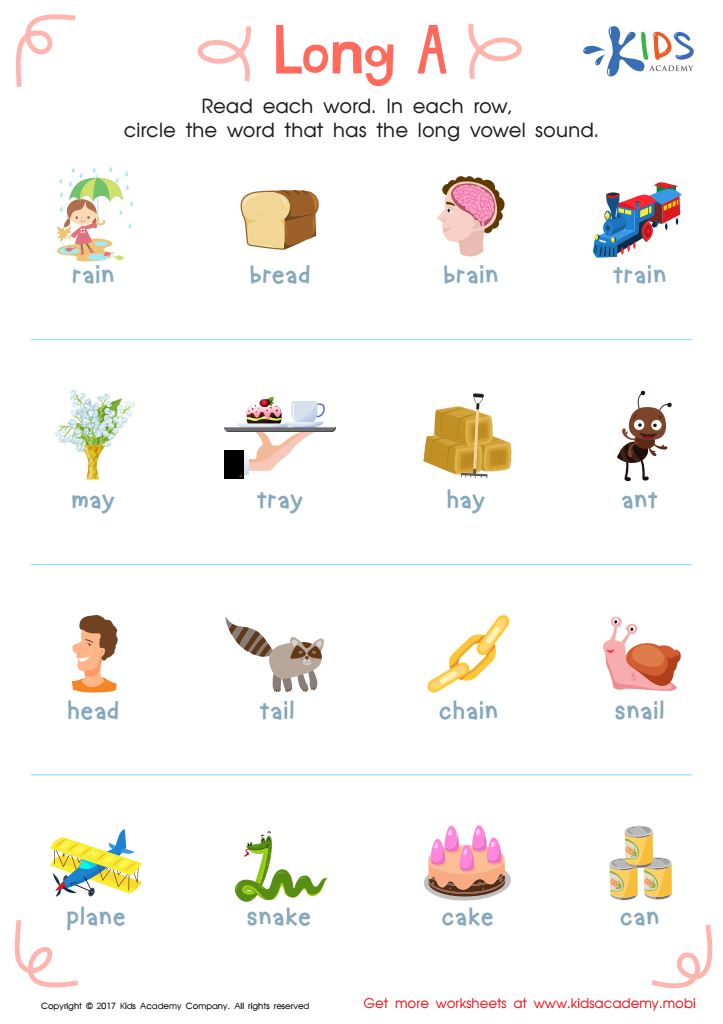Reading practice Phonics Worksheets for Ages 4-7
6 filtered results
-
From - To
Discover engaging Reading Practice Phonics Worksheets designed for children ages 4-7, aimed at making the early learning journey exciting and effective. Our expertly crafted worksheets help young learners master phonics, boosting their reading confidence and comprehension. Each activity is thoughtfully developed to enhance letter recognition, sound association, and word formation. These worksheets are perfect for both classroom and at-home practice, offering a fun, interactive way to build foundational reading skills. Support your child’s literacy development with Kid's Academy's high-quality resources, available now for hassle-free download and printing. Your child's reading adventure starts here!
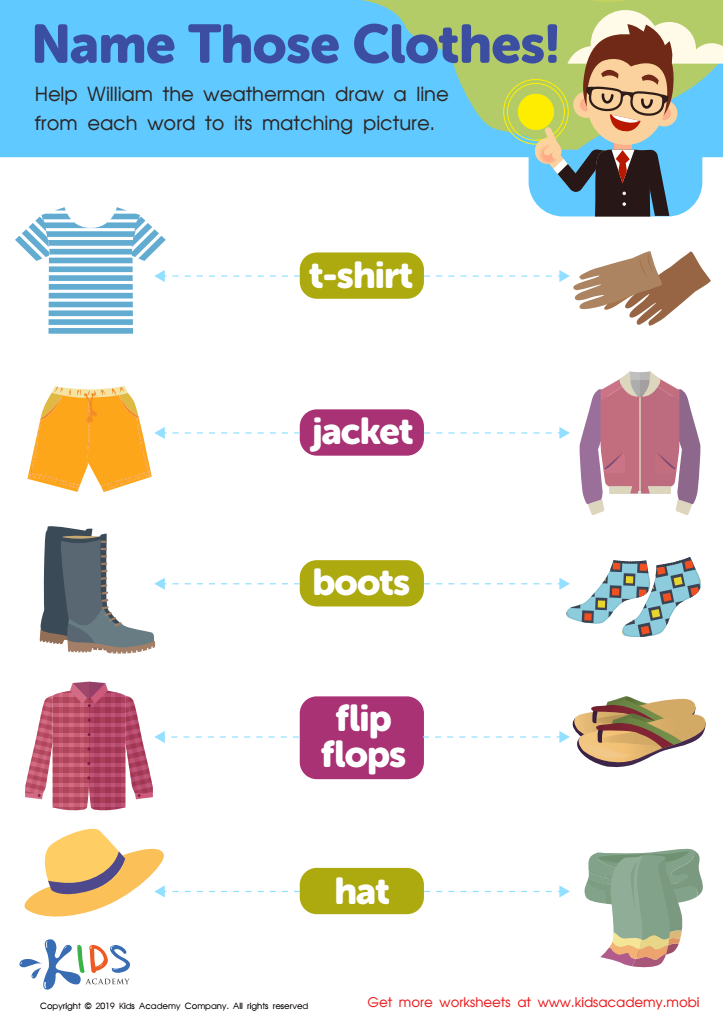

Name Those Clothes Worksheet
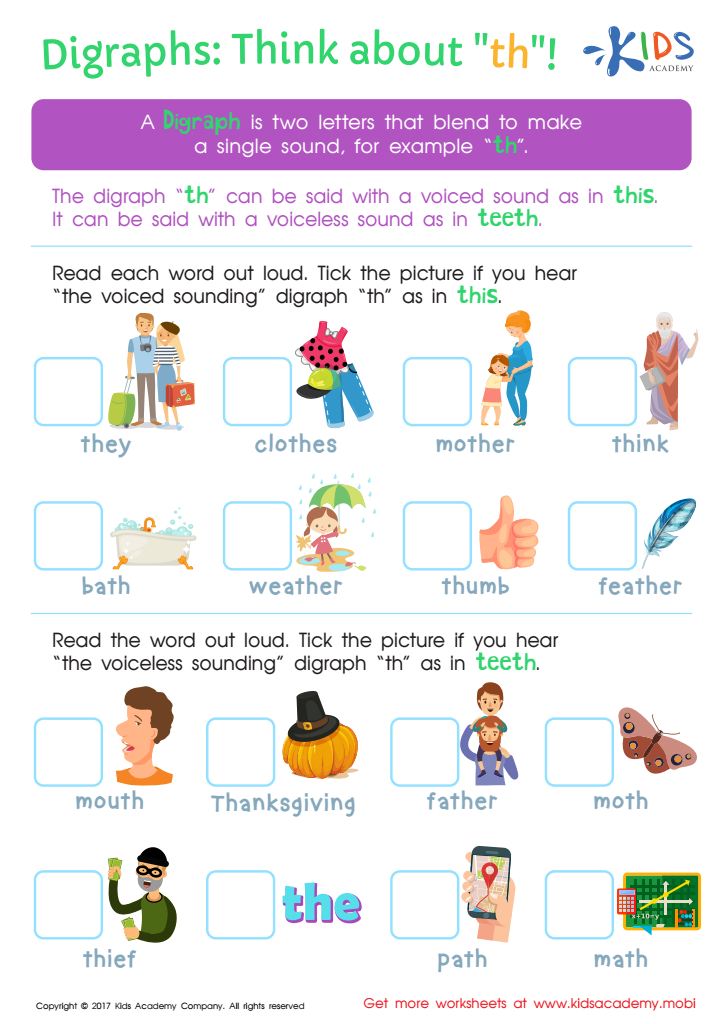

Digraphs: Think About "th" Worksheet
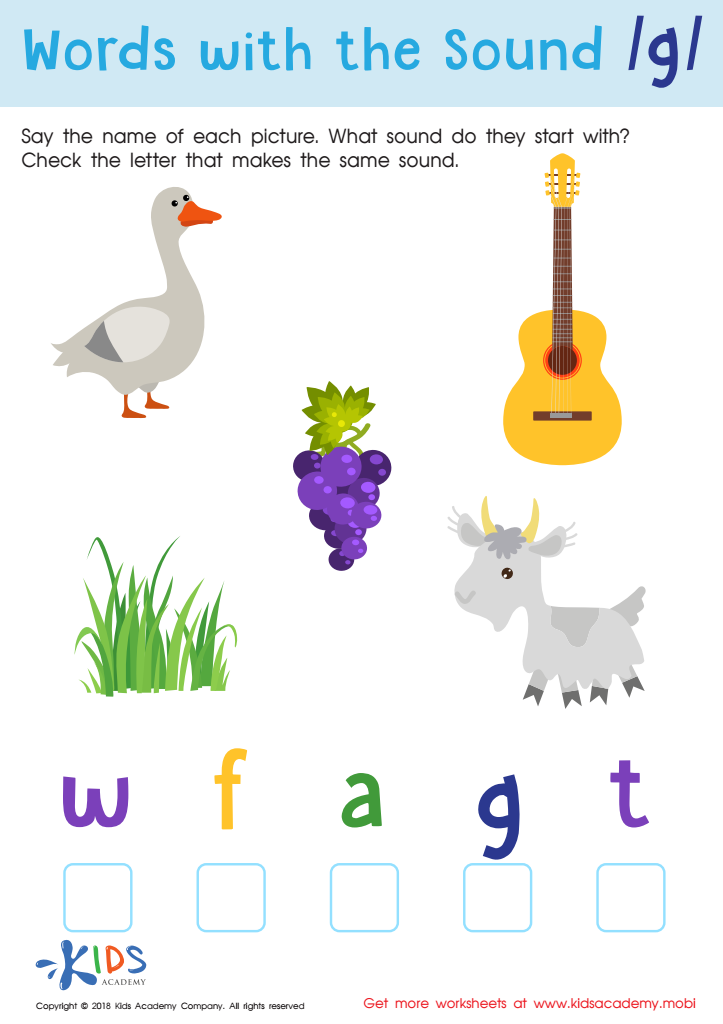

Words with sound g Reading Worksheet
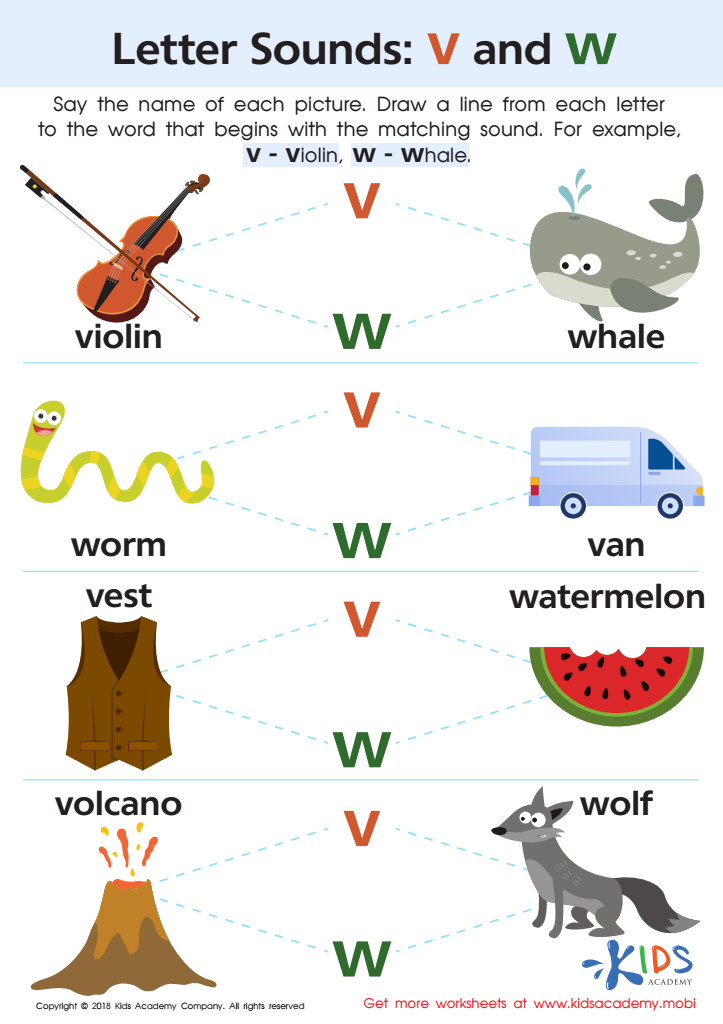

Letter V and W Sounds Worksheet
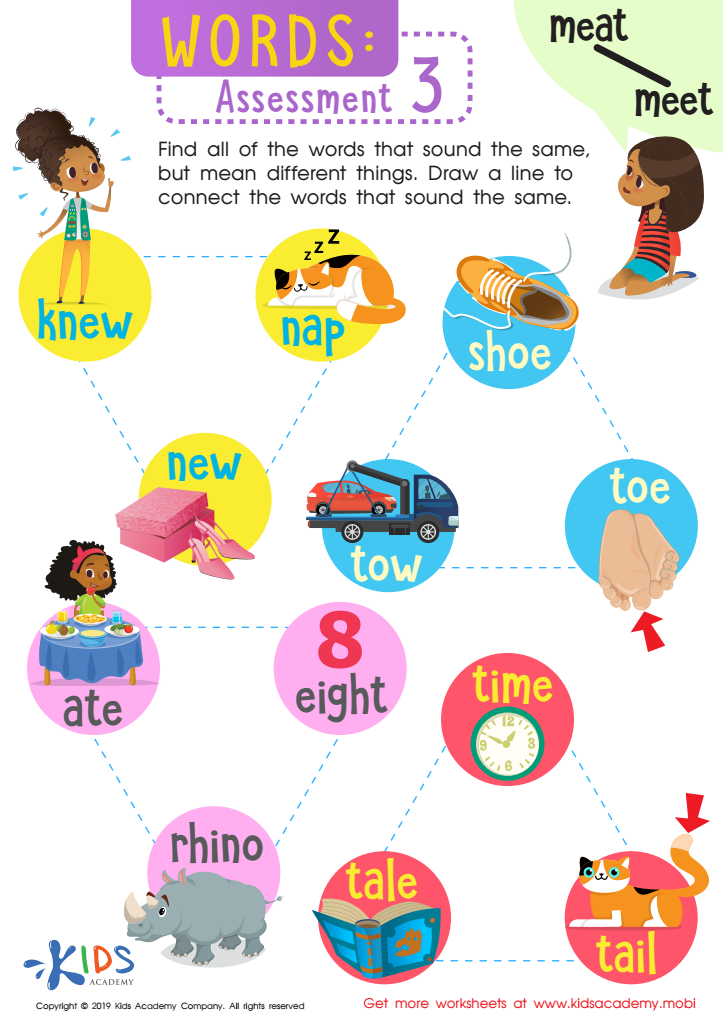

Words: Asessment 3 Worksheet
Parents and teachers should prioritize reading practice and phonics for children aged 4-7 because these early years are crucial for developing foundational literacy skills that have a lasting impact on academic success and lifelong learning. Phonics, which involves understanding the relationship between letters and sounds, is a proven method to help children decode words quickly and accurately, laying the groundwork for fluent reading.
At ages 4-7, children's brains are particularly receptive to learning language and reading skills. By engaging with phonics, children develop critical skills such as sounding out words, recognizing word patterns, and understanding spelling rules. These abilities boost their confidence and reading fluency, making learning across all subjects easier.
Furthermore, consistent reading practice enhances vocabulary, comprehension, and cognitive skills. It also nurtures a love for reading, promoting curiosity and imagination. When children improve their reading abilities early on, they are better equipped to handle complex texts in later grades and are more likely to become lifelong readers.
Investing time in phonics-based reading practice ensures that young learners become proficient readers and enthusiastic students. This sets a strong foundation for future academic achievements and opens up endless opportunities for personal and intellectual growth.

 Assign to My Students
Assign to My Students


